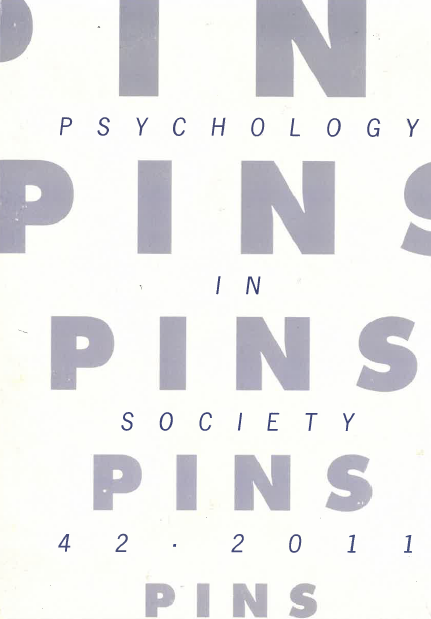SOCIAL CLASS AND PSYCHOTHERAPY: A CRITICAL READING OF THOMAS SZASZ’S THE ETHICS OF PSYCHOANALYSIS
DOI:
https://doi.org/10.17159//2309-8708/2011/n42a3Keywords:
Psychoanalysis, psychotherapy, social class, Thomas Szasz, Sigmund FreudAbstract
This paper aims to offer a critical reading of Thomas S. Szasz’s The ethics of psychoanalysis: The theory and method of autonomous psychotherapy (1965 / 1988a). In particular, the critical reading is focused on revealing and investigating the presence of attitudinal biases and beliefs pertaining to the social class of
psychotherapy. It will be argued that in Szasz forwarding his thesis, a number of statements regarding social class are raised. In particular, and for the purposes of this paper, the key focus will be an investigation of Szasz’s proclamation that the poor and uneducated do not need psychoanalysis but require freedom, knowledge and skills. The paper will argue that this statement may not necessarily be presenting an attitudinal bias or belief against the poor and uneducated. Rather, Szasz is professing the nature and limitations of psychotherapy. Nonetheless, Szasz’s text still reflects attitudinal biases through the disapproval of the efforts made by Sigmund Freud to make psychotherapy available to all people.
Downloads
Downloads
Published
How to Cite
Issue
Section
License
This journal is an open access journal, and the authors' and journal should be properly acknowledged, when works are cited.
Authors may use the publishers version for teaching purposes, in books, theses, dissertations, conferences and conference papers.
A copy of the authors’ publishers version may also be hosted on the following websites:
- Non-commercial personal homepage or blog.
- Institutional webpage.
- Authors Institutional Repository.
The following notice should accompany such a posting on the website: “This is an electronic version of an article published in PINS, Volume XXX, number XXX, pages XXX–XXX”, DOI. Authors should also supply a hyperlink to the original paper or indicate where the original paper (http://www.journals.ac.za/index.php/pins) may be found.
Authors publishers version, affiliated with the Stellenbosch University will be automatically deposited in the University’s’ Institutional Repository SUNScholar.
Articles as a whole, may not be re-published with another journal.
The copyright of the article(s) lies with the author(s).
The copyright of the journal lies with PINS-psychology in Society.
The following license applies:
Attribution CC BY-NC-ND 4.0 - https://creativecommons.org/licenses/by-nc-nd/4.0/

